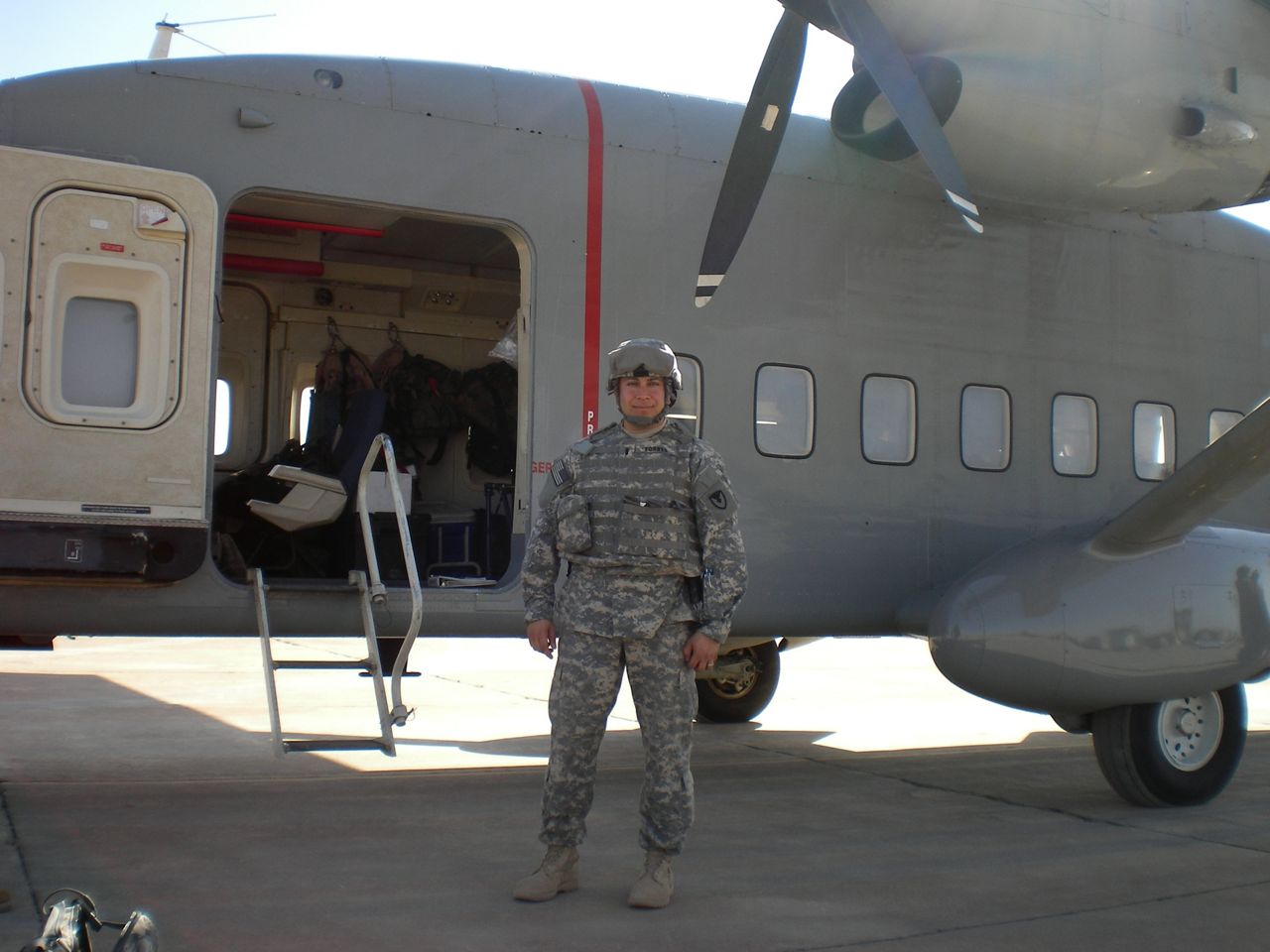WASHINGTON — Last year the Veterans Administration agreed to help some veterans of the Iraq and Afghanistan wars who became sick after exposure to toxic burn pits. Now, there is a movement in Congress to dramatically expand that help. For one Texas family batting for assistance, what the federal government has done has not been enough.
“You never got back the person that left,” Rosie Torres, who lives in Robstown, just outside of Corpus Christi, told Capital Tonight.
When Torres’ husband Le Roy went home to Texas after serving in Iraq a decade ago, it was painful to see his health decline.

“It’s really heart-wrenching as a wife, as a mother, to try to explain to your children what do your lives look like from here on out. And for us, we’re one of the lucky ones, right? That he’s still here with us,” Rosie Torres said, “Many of our advocates and friends, I consider them family now, have buried their loved ones, and we’ve lost them all along the way of our journey.”
Ret. Army Cpt. Le Roy Torres was exposed to the smoke from burn pits the military used to incinerate trash in Iraq and Afghanistan. His family said that led to a debilitating lung condition and a brain injury.
They spent their life savings to get care because the Department of Veterans Affairs denied specialized coverage.
“If we could have our lives back to what it was prior to the war, we would,” Rosie Torres said. “No one wants to, you know, give up their careers to try and collect a little compensation check.”

In Washington, the issue is a priority for House Democratic leaders. They want to expand health care and disability benefits to affected veterans and pass the Honoring Our Promise to Address Comprehensive Toxics, or PACT Act.
“From our standpoint, if you were there, you qualify. We don’t have to go through any torturous process to decide if somebody’s illness depended on something that they were exposed to,” House Speaker Nancy Pelosi said earlier this month during remarks about legislative priorities.
After comedian Jon Stewart brought attention to the issue last year, the V.A. ruled that developing asthma, rhinitis or sinusitis is presumed to be linked to their service. But lawmakers want many more illnesses covered.
“I thought that the United States government would have learned its lesson with Agent Orange and all of the bureaucratic red tape and the years of waiting and suffering that so many of our Vietnam-era veterans went through,” U.S. Rep. Joaquin Castro, D-San Antonio told Capital Tonight. “We need to do right by our service members. These are people who went and risked their lives on behalf of the United States and our allies around the world. They put themselves in harm’s way, and they were in fact harmed by these burn pits.”
Jen Burch, a communications and government relations associate for Iraq and Afghanistan Veterans of America, said among her illnesses, she has an abnormal growth in her lungs and restrictive lung disease after exposure in Afghanistan. It took her seven years to get benefits approved. She said such growth is a precursor for cancer, and because she did not have special benefits, she was paying thousands of dollars out of pocket. Burch said she had to be her own medical and legal advocate.
“I had to essentially build my own case to prove that not only did I have a toxic exposure, medical condition, but I [also] had to connect it to my service. I started showing symptoms within the service. It was easier for me to connect this disability, service connection, whereas a lot of other veterans don’t necessarily start showing symptoms while they’re still in the military,” Burch said. “There’s a big burden of proof that lies with that veteran.”
Burch said the biggest pushback is over expenses. According to one estimate from the Congressional Budget Office, the PACT Act would cost $281.5 billion if funded through 2031.
“We wrote a blank check, you know, to our nation, and we’re not asking for the same back. We’re only asking the government what is owed to us,” Burch. “That is the care and services needed to address the injuries that we’ve sustained while serving invisible and visible.”
The Torres family founded the Texas-based organization, Burn Pits 360, to advocate for affected service members. While the wars are over for veterans, for many, the battle to cover health care costs is only beginning.
“It’s just going to continue to plague our veteran community, and more and more people continue to die,” Rosie Torres said.




